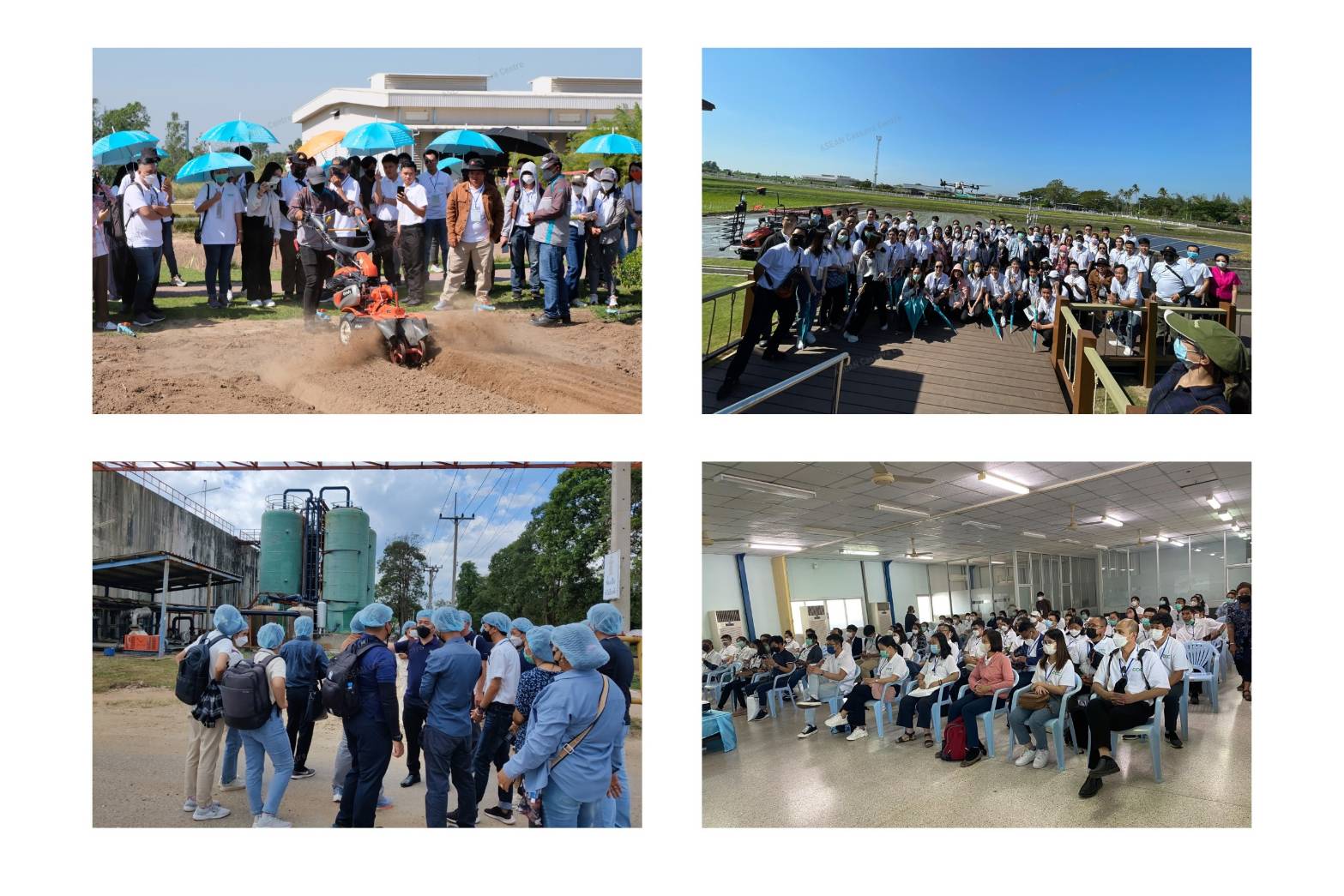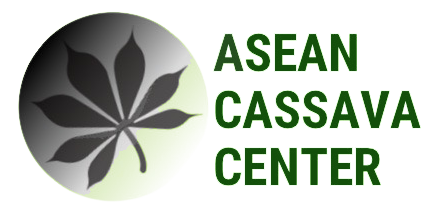TTC Phase I Training in Bangkok, Thailand
The Phase I training program for the “Train-the-Trainer Program under Lancang – Mekong Cooperation to Enhance Production Capacity and People’s Livelihood by Improving the Value Chain for Cassava Cultivation and Application: Clean Cassava Chips, Native Starch, Modified Starch, Ethanol and Biogas Production (TTC)” project commenced with an opening ceremony at Pullman King Power Bangkok on 12 December 2022. Dr. Warinthorn Songkasiri, the principal iInvestigator of TTC, and Dr. Kanchana Saengchan, the co-project investigator, delivered keynote speeches emphasising the development and sustainability of the cassava value chain in the Mekong region.
The event began with a panel discussion featuring technical experts with years of research and entrepreneurial experience in cassava. The panellist included Prof. Dr. Morakot Tanticharoen, an advisor of the BKT R&D Cluster, King Mongkut's University of Technology Thonburi (KMUTT); Prof. Dr. Ed Sarobol, a professor of agriculture at Kasetsart University; Dr. Siwarutt Boonyarattanakalin, the assistant innovation director of Siam Modified Starch Co., Ltd.; and Mr. Pajon Sriboonruang, the president of the Thai Biogas Trade Association. The topic of discussion was “Circular Economy and Sustainable Development of the Cassava Value Chain.
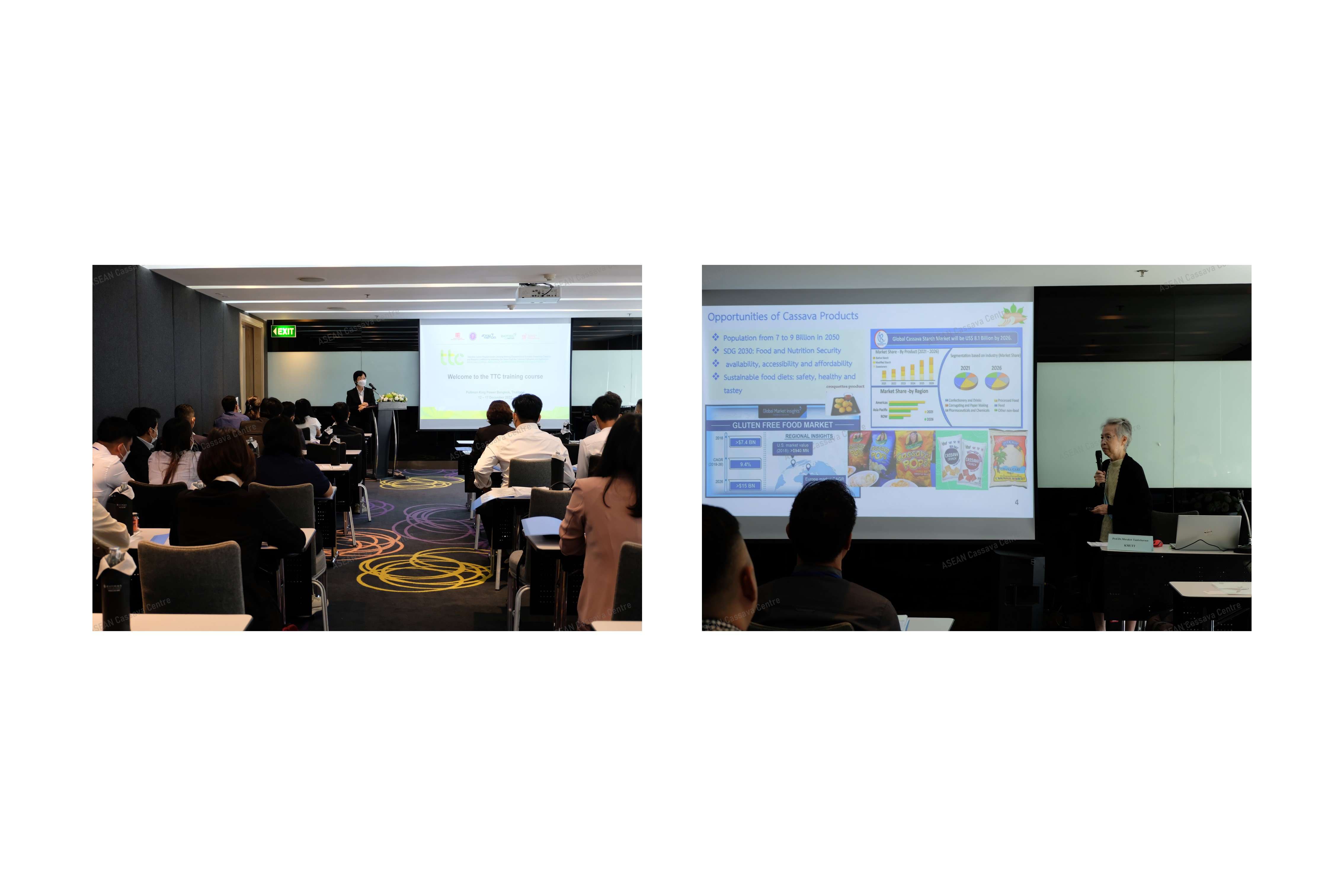
The training program for Module I focused on cassava cultivation and attracted 15 participants from Cambodia, Lao PDR, Vietnam, Thailand, and China. The three-day course was intensive, featuring professors and experts from the Faculty of Agriculture, Kasetsart University (KU) and the Thai Tapioca Development Institute (TTDI).
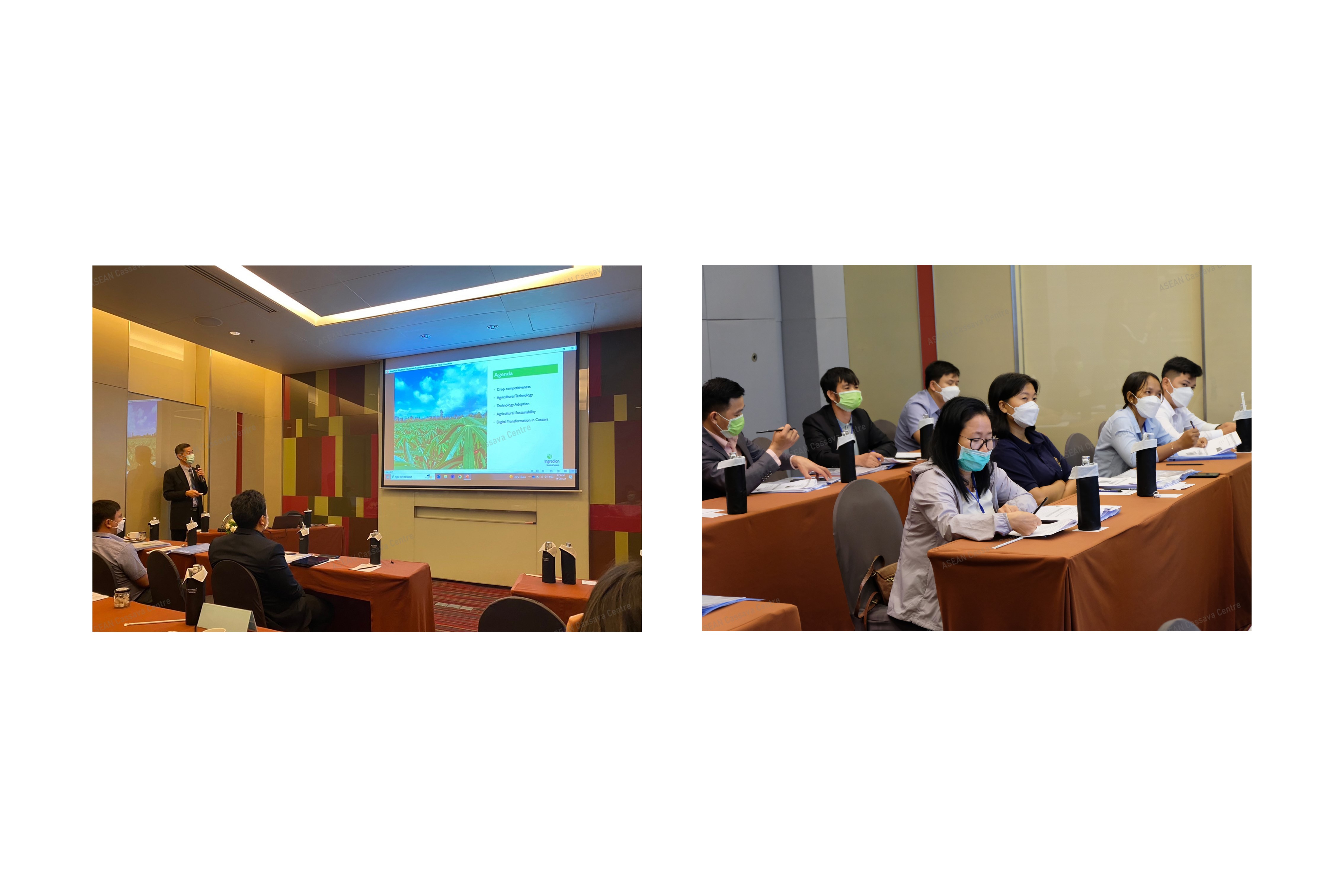 The TTC training program for Module 2 (Cassava Starch Processing) was divided into two parts: lecture on 12–13 December 2022, and demonstration on 14 December 2022. Professors and experts from the National Center for Genetic Engineering and Biotechnology (BIOTEC-NSTDA), King Mongkut’s University of Technology Thonburi (KMUTT) and Department of Industrial Works (DIW) delivered a series of lectures while participants engaged in active learning in the lab demonstrations at the Kasetsart Agricultural and Agro-Industrial Product Improvement Institute (KAPI), Kasetsart University (KU), Thailand.
The TTC training program for Module 2 (Cassava Starch Processing) was divided into two parts: lecture on 12–13 December 2022, and demonstration on 14 December 2022. Professors and experts from the National Center for Genetic Engineering and Biotechnology (BIOTEC-NSTDA), King Mongkut’s University of Technology Thonburi (KMUTT) and Department of Industrial Works (DIW) delivered a series of lectures while participants engaged in active learning in the lab demonstrations at the Kasetsart Agricultural and Agro-Industrial Product Improvement Institute (KAPI), Kasetsart University (KU), Thailand.
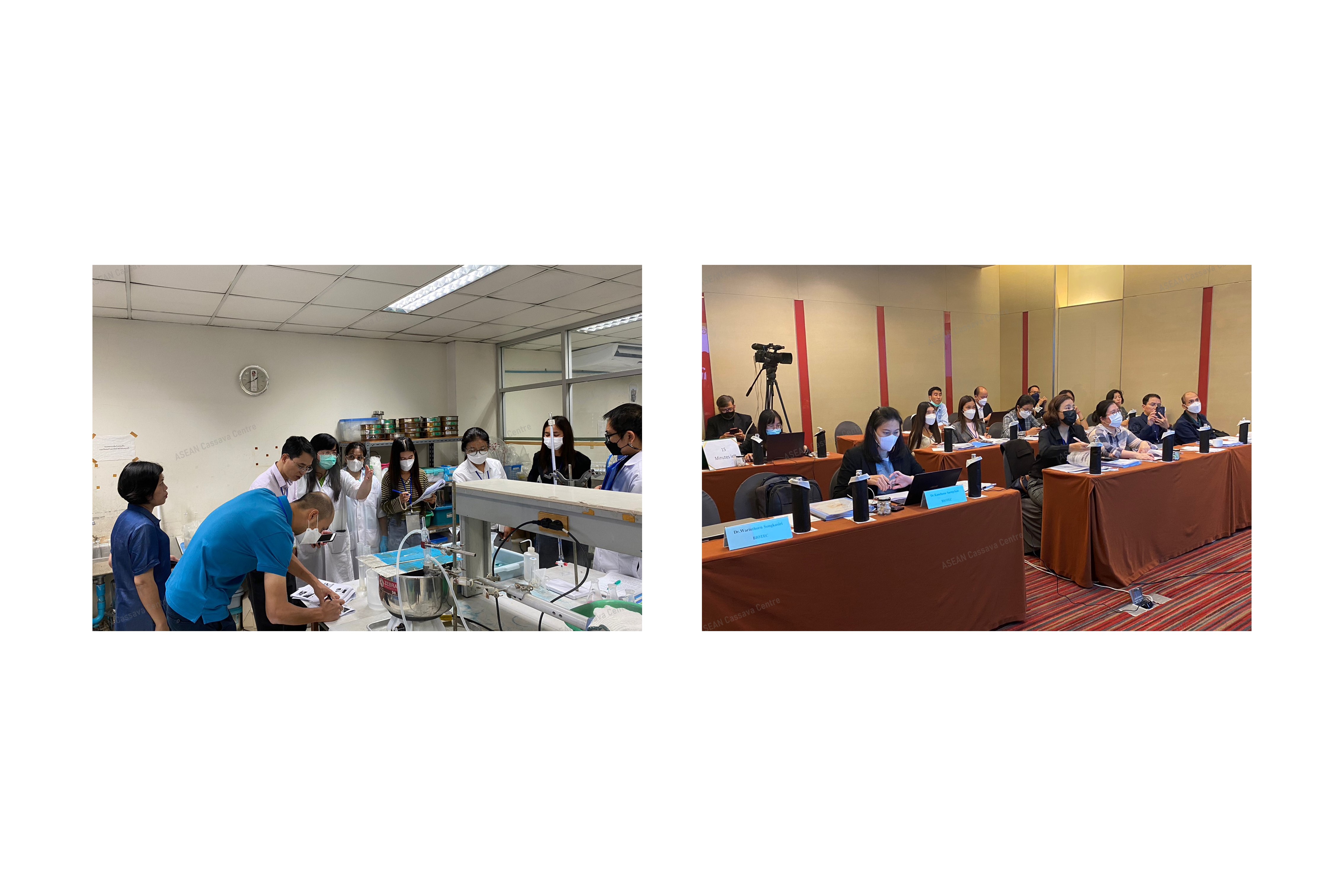
For Module 3 (Cassava Waste Management), the first two days (12–13 December) consisted of lectures delivered by professors, engineers, and entrepreneurs from the National Center for Genetic Engineering and Biotechnology (BIOTEC-NSTDA), King Mongkut’s University of Technology Thonburi (KMUTT), Muban Chombueng Rajabhat University (MCRU), Chiang Mai university (CMU), and Thai Biogas Energy Company. The lectures covered various topics related to cassava waste management and utilisation, and biogas production. On the third day (14 December), participants paid a visit to the Pilot Plant Development and Training Institute, King Mongkut's University of Technology Thonburi (KMUTT), Thailand
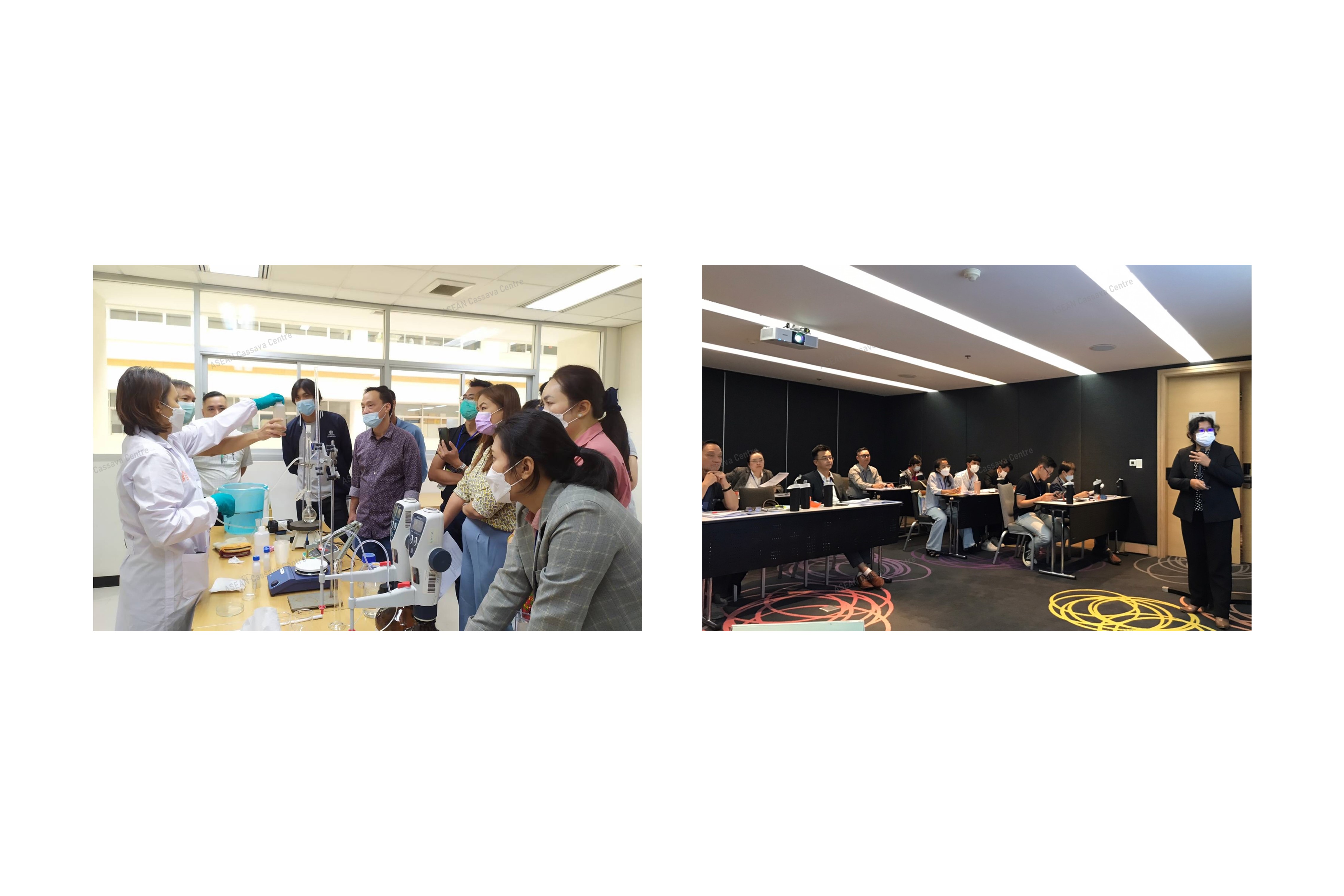
Module 4 training focused on cassava bioethanol production, providing a rich and engaging learning experience for 16 TTC participants.
On 12 December 2022, participants gathered at the Pullman King Power Bangkok to attend a series of lectures delivered by professors and researchers from the National Center for Genetic Engineering and Biotechnology (BIOTEC-NSTDA), King Mongkut’s University of Technology Thonburi (KMUTT), and the Faculty of Agriculture at Kasetsart University (KU).
The following day (13 December), participants had the opportunity to participate in lab demonstrations at the Kasetsart Agricultural and Agro-Industrial Product Improvement Institute (KAPI), KU, Thailand. On the final day of training (14 December), participants visited the bioethanol pilot plant to learn more about ethanol production from cassava at the Pilot Plant Development and Training Institute, KMUTT, Thailand.
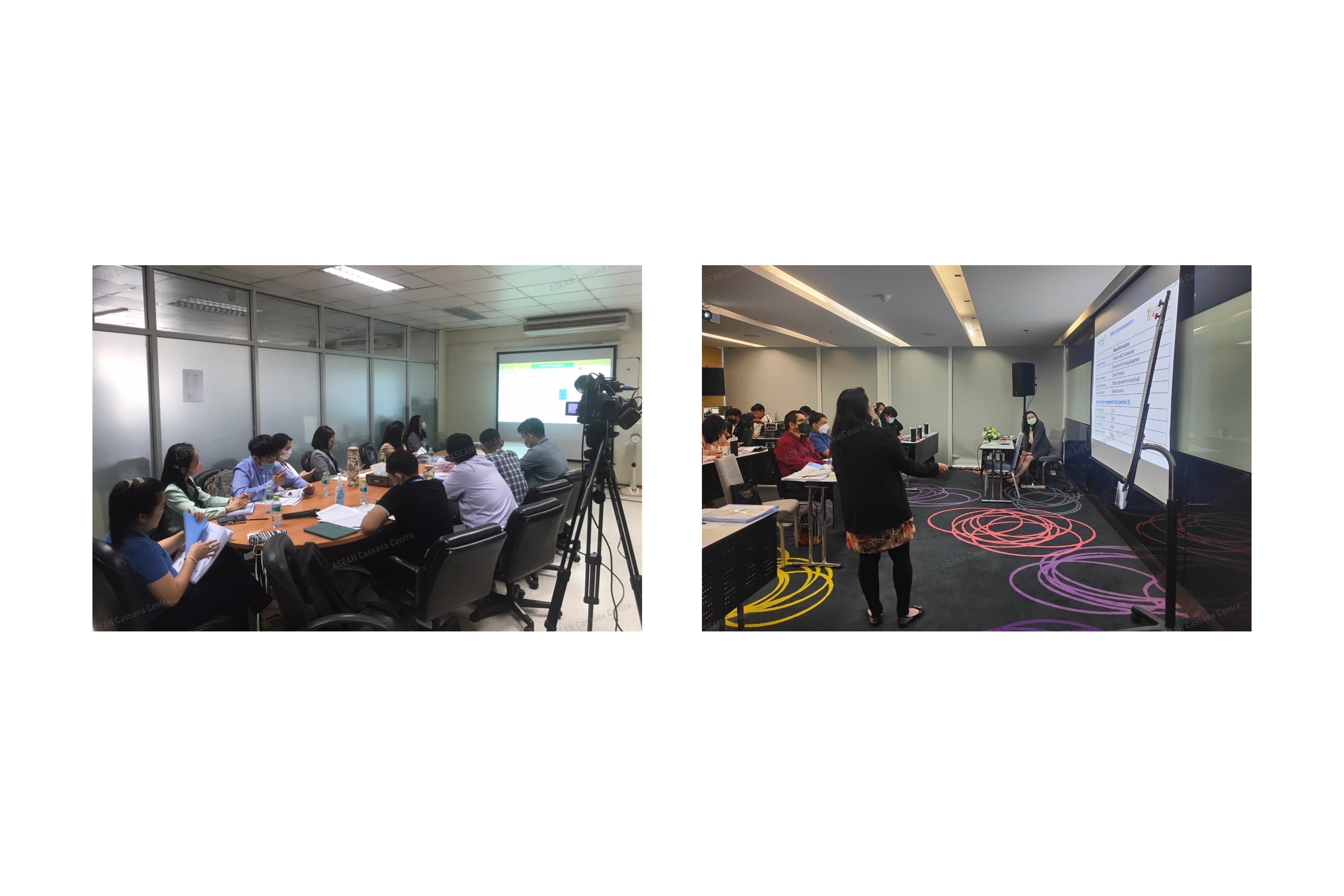
One of the highlighted activities organized following the CCC closing ceremony on 15 December 2022 was the networking event, which brought together more than 70 participants from the CCC and TTC projects in Cambodia, Lao PDR, Myanmar, Vietnam, and Thailand (CLMVT). The event aimed to establish a solid foundation for the cassava industry in each country and to create a focal point for the national cassava center. Country coordinators and participants worked together to assess the status of the cassava industry in their respective countries by conducting a SWOT analysis of the cassava value chain. Once each country had established its status, the final brainstorming session focused on identifying regional goals for the sustainable development of the cassava value chain and key stakeholders who can help achieve these goals.
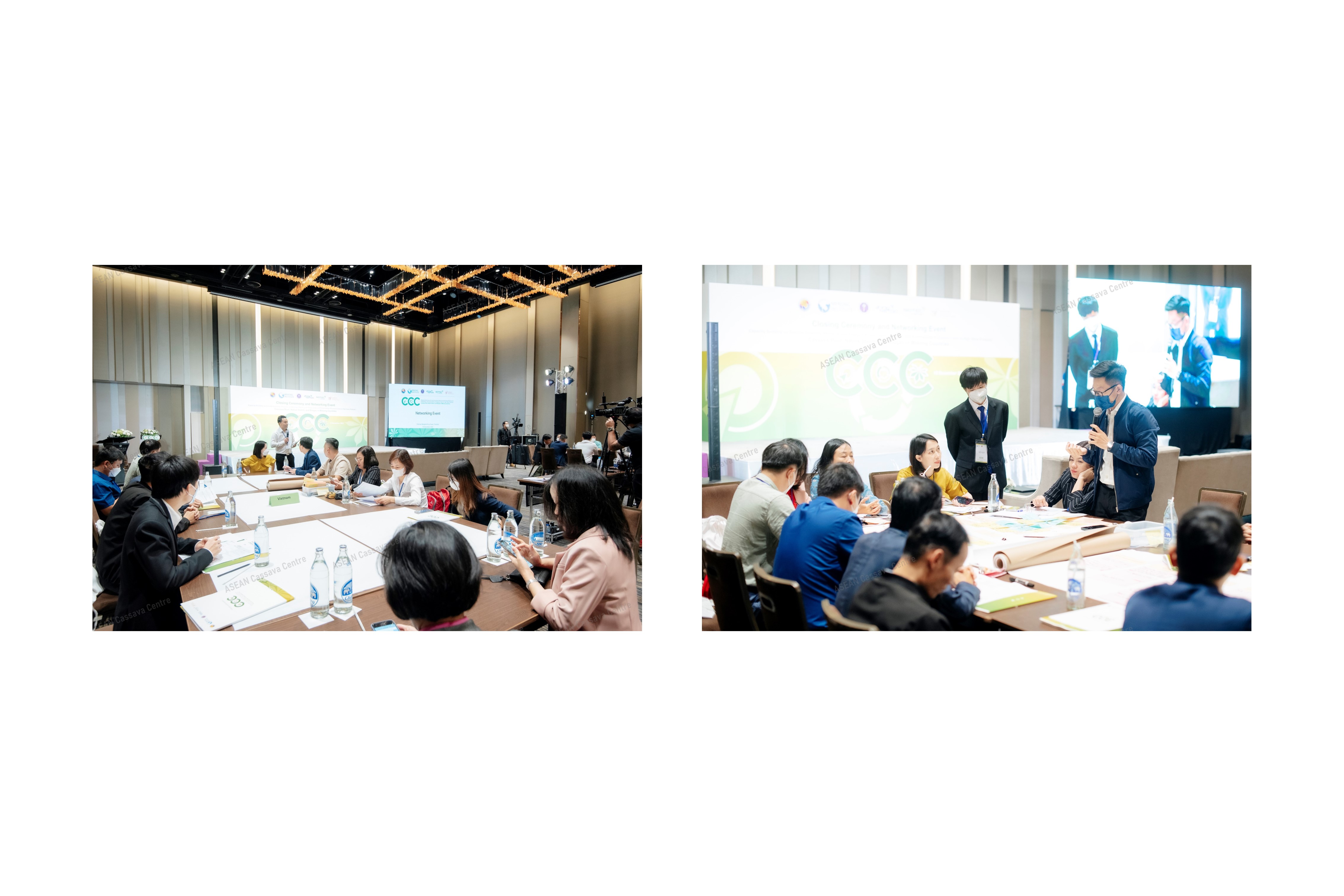
The Phase I TTC training program concluded with a 2-day site visit outside Bangkok, aimed at providing hands-on experience and showcasing Thailand's exceptional innovation and technology in the cassava industry. On 16 December 2022, CCC and TTC participants visited Kubota Farm in Chonburi, where they were shown various demonstration fields, including cassava, managed using smart agricultural technology. In the afternoon, the journey continued to the Liquor Distillery Organization in Chachoengsao, where participants were given a closer look at the operation of the ethanol distillery plant, which has extensive experience in using cassava pulp as a raw material for ethanol production. The following day, participants were granted the opportunity to visit Chorchaiwat Industry Co.Ltd., where they observed each individual cassava starch production process and had their questions answered by the plant engineer. They also had the chance to explore the on-site biogas production plant, fed on waste from the cassava starch production.
